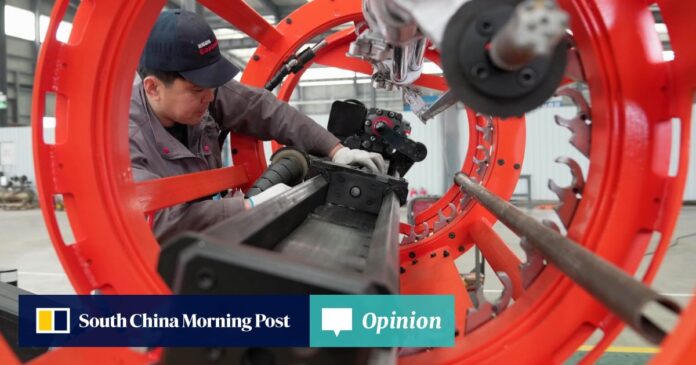A footnote towards the end particularly haunts me. Here, Wang compares the gross domestic growth (GDP) trajectories of Japan, South Korea and Taiwan from their rapid rise to slowdowns, and their uncanny parallels with those of China, which we are only now seeing. Also, all are experiencing depopulation.
Japan’s annual GDP growth rate averaged more than 10 per cent in the 1960s, fell to more than 4 per cent in the 1970s and 80s. In the decade after the economic bubble burst, it was just 1.5 per cent.
South Korea achieved 9.5 per cent average growth in the 60s and 10.5 per cent in the 70s. This fell to 8.9 per cent and 7.3 per cent in the next two decades.
Following the Asian financial crisis, the noughties registered just 4.7 per cent and the 2010s, 2.6 per cent.
Taiwan tells a similar story. It averaged 8 per cent in the 70s but down to 5 per cent in the 90s and 3.5 per cent in the 2000s.
Elsewhere, Wang observes that both Japan and South Korea experienced the fastest economic growth rate during the period when their urban population rose from 30 to 75 per cent.
Similarly, in terms of per capita income, in the past three decades, China expanded at more than 10 per cent annually as its urban population share climbed from below 30 per cent to nearly 70 per cent. In the past decade, though, China experienced a decline in GDP per capita growth from 10 per cent in 2010 to below 6 per cent in 2019.
“It’s evident [that] the era of China’s abundance, marked by hyper-growth and a rapid rise in living standards, has come to a close,” Wang wrote.
Of course, GDP numbers can only tell so much.
In these Asian economies, a cheap and immensely productive labour pool helped pull themselves up by their own bootstraps. But despite their exploitation, the next few generations have come to enjoy the fruits of their labour.
Meanwhile, a unique confluence of factors made China what it is today. Mao Zedong’s undeniable contributions were to make the nation a highly literate one, along with a significant improvement in general health.
Even his disasters with the famine and Cultural Revolution – compared by Wang to the medieval Black Death which paved the way for the European Renaissance – made it possible for Deng Xiaoping to implement reforms after Mao’s death.
And now, back to that human rights debate I raised earlier. Neither private household farming in the late 70s nor the rise of rural industries in the 80s were party initiatives. Deng’s genius was to let such bottom-up developments happen and to intervene only when necessary.
The Soviet collapse marked the start of a new era of globalised trade, which enabled the United States to financialise capitalism (or deindustrialisation) and China to become the world’s manufacturing hub. Together, they formed a super-synergy which only came to an end with the last global financial crisis.
But here we are. Some people now fret about civil war in the US, others about demographic and economic collapse in China. That these two are at each other’s throats will make it worse for everyone.

